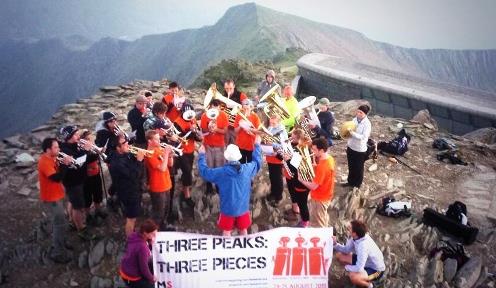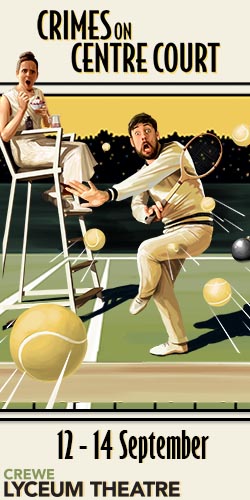
A brass band of 30 musicians from across Britain including two ex-Nantwich pupils, has completed an amazing Three Peaks Challenge.
Ex Brine Leas pupils Ian and Sarah Raisbeck were among those who conquered the challenge complete with instruments.
They also raised £15,000 for the MS Society of Great Britain into the bargain.
The ensemble, called Three Peaks Brass, aimed to play a tune at the summit of all three mountains, the highest in Scotland, England and Wales, in 24 hours.
The band played the respective national songs on each peak – Flower of Scotland on Ben Nevis, Jerusalem on Scafell Pike, and Land of my Fathers on Snowdon – to the delight and bemusement of other walkers, some of whom made donations on the spot.
Sarah, 27, and brother Ian, 29, (pictured) said: “It was a massive challenge that took a huge amount of determination from every single player.
“The support from friends, families, the brass band community, other walkers and even total strangers was a great boost.
 “It really seemed to capture people’s imagination and to have smashed our original fundraising target of £10,000 so spectacularly makes it doubly worthwhile.
“It really seemed to capture people’s imagination and to have smashed our original fundraising target of £10,000 so spectacularly makes it doubly worthwhile.
“The challenge was not without incident – some members were obliged to turn rescuers when they came across an exhausted female walker struggling on the descent from Ben Nevis in the dark.
“She later got in touch with the band on Twitter and Facebook to thank them and said ‘I dread to think what would have happened if you hadn’t all been so nice’.”
It’s thought to be the first time a full brass band with 30 brass instruments including trombones, cornets, euphoniums and tubas weighing 12kg each, has completed the challenge.
The donation site is still open: virginmoneygiving.com/team/3peaksbrass
Watch a video of the band playing at the top of Snowdon here: https://www.facebook.com/photo.php?v=501712716584333






















Recent Comments